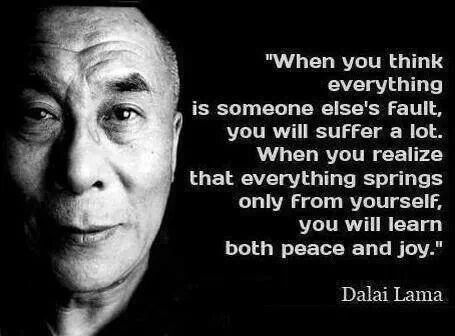Repentance Means Having to Say You’re Sorry (with apologies to Eric Segal).
That adage made its way into my notes as I prepared for today’s post, but, unfortunately, I’m not sure if it’s original with me. If I stole it from you, I apologize. Be sure to wave your arms and get my attention; I’ll be happy to credit you.
Ironic to find two apologies in the first two paragraphs. And both came out somewhat flippantly. Flippant apologies must be contagious, for there have certainly been a run of them in the news of late.
Today, though, October 12, 2016, is Yom Kippur, the Jewish “Day of Atonement,” a day about which there is nothing flippant.

Most of us know that Yom Kippur is the highest of all the Jewish holidays.
But, unless you’re Jewish, I’ll bet you don’t know that Yom Kippur:
- calls for a 25-hour fast
- is often observed by wearing white as the symbol of purity
- begins with a prayer asking God to relieve promises made because, otherwise, historically, those were promises made in the early centuries of Christendom, when Jews were forced to convert. That’s how seriously Jews take their vows. Only God can relieve them of that obligation.
Prior to today’s post preparation, I knew this holiday mostly through its connection to “the Yom Kippur War” of 1973.
As a result, I set out to write (and learn) about Yom Kippur.
But, as so often happens when I write, I found myself veering into new territory. From those basics of the Yom Kippur holiday, I learned about atonement, which moved me to look into the role of repentance in the world’s major religions (I found it in all of them).
And, as I examined repentance and its many aliases — apology, remorse, regret, confession, contrition, penitence, guilt, grief, and personal responsibility — our current political headlines surrounded me.
It’s a stressful time in our country, an unsettling time with the future of our democracy unpredictable. Fortunately, rather than getting absorbed by the details of our current political malaise, I found myself dissecting the concept of an apology, the act of repentance. What makes one apology work, while another one doesn’t? What, exactly, is the power an apology holds? What does it take to truly repent?
I see repentance as the means to heal a fractured relationship.
Whether that relationship is with ourselves, our God, our partner, our neighbor, our community, or our country, I’m holding to the notion that the structure of the ensuing apology will be the same.
I chose the Identify, Own, and Honor three-step model, which I’d long used with clients working with their emotions. Let’s find out if that model will work with apologies too.
-
Identify.
What is it you’re actually apologizing for? An apology must begin with an acknowledgment that something was done that caused injury. At this point, we want to make sure both sides are on the same page. What, exactly, did I do wrong? What is it I’m admitting to? What is the injury? Name it.
In the example from our current headlines, was the apology expected for the words spoken, the attitude toward women conveyed, or the philosophy of power exposed?
Whether it’s an emotional injury (you embarrassed me; you broke my heart), a financial injury (you broke my window; you embezzled from my company), a physical one, or some other type, the specific injury needs to be named and acknowledged. Agreeing upon it would be helpful. But it’s not enough.
2. Own
Whose fault is it, really? I came across this quote from the Dalai Lama, which, as quotes from the Dalai Lama tend to do, spoke eloquently on just this point:

“When you realize that everything springs only from yourself, you will learn
both peace and joy.”
I did it. And I am sorry. I regret.
This is the moment when we accept the part we played in creating the injury, when we admit (to ourselves first), that we erred. Sometimes the regret is so great, we grieve the loss of who we thought we were. And for many, that is hard to do.
Sometimes it’s a simpler matter of accepting that we made a mistake. But even that acceptance takes courage. We become vulnerable when we admit our faults, our weaknesses. It can be scary to allow ourselves to feel vulnerable. But it is in that very vulnerability that we make the connection so needed to heal. It is in that very humility that we acknowledge our humanity.
How easy it can be to deflect that vulnerability, to blame someone else, to divert attention elsewhere, away from ourselves.
And, in our headlines example, we all know the deflection that was given. That one wasn’t even subtle.
An apology is not the time for excuses, but it is the time for explanation. And there’s an important difference. I believe a good apology requires an explanation that puts the injury into a broader context. It is only through understanding this broader picture that the injured party can begin to believe it will not happen again.
I didn’t know. I forgot. I was not paying attention. I was an insensitive brute. And I’m sorry. I was greedy; I was wrong.
3. Honor
What can you do to make it right? To heal the rift; right the wrong? This is the reparation part, the “evening up” stage of the apology. This is the time to show you have changed, the time to walk the talk. To carry out the answer to the question you must ask, “What can I do to make it right?”
We started with the premise that an apology, at its core, is about healing a fractured (injured) relationship. But some relationships aren’t going to mend. Sometimes what it will take to make amends is more than you are willing or able to do.
Can you have a genuine apology without reparation, without repair? Replacing the broken window or paying the medical deductible is simple enough. What about a broken heart, an injured pride, a broken promise? What about a difference of opinion, the uncovering of a contrasting value? How does one go about making reparations for an intangible injury? How much is one willing to change to please the other?
And, finally from our headlines example, do we know where the apology began? I read that it was expected, anticipated, necessary. Where did it begin though?
Besides trying to fit the structure of an apology into this Identify, Own, and Honor model, I found a few other points about apologies I’d love to follow.
- I haven’t said nearly enough about forgiveness; that’s worth a whole post and others have done it and done it well.
- An apology can go sour at any one of the three points; I’d love to talk more about that, someday.
- I’m proposing that the unsolicited apology is worth more than the one given on demand. That deserves further exploration.
Yes, there is still much to chew on, write about, discuss on the topic of repentance, atonement, apology. One thing for certain, however: It takes courage to truly repent, even privately. To fully acknowledge and accept that we are fallible, we make mistakes, we screw up. And then we apologize.
I am grateful that the Jewish holiday of Yom Kippur reminded me.

How about you? What makes apologizing difficult? Or easy? Possible?
Ian Mathie
I like this post. It is both timely and appropriate to so many sad situations that feature in the world of today.
But it leaves us many questions: How can Putin ever really apologise for bombing hospitals in Aleppo? How can Bashir Assad truly apologise for destroying his country and displacing most of its citizens, condemning them to misery and interminable hardship? How can the UN apologise for acknowledging carnage and strife and then doing nothing about it?
And, most difficult of all, how can those who wrote the constitution and established the American electoral process ever apologise to the turmoil and fear the current electoral cycle has engendered?
And those are all before breakfast. Later I ask myself: how can next door’s dog apologise for the crap it left on my doorstep today?
Life ain’t simple or straight forward and apologies are as convoluted and everything else.
Janet
Ah, the “crimes against humanity” dilemma. That’s a very big one, Ian. Thanks for bringing it up. It reminds me of the apology that Robert McNamara made to the American people for his role in fostering our involvement in Vietnam. I welcomed that apology, accepted it as heartfelt; but not many did. Certainly none in the mass media. Apologizing is so often judged by those not involved as a sign of weakness, when, if done “right,” it’s anything but. It takes enormous courage and strength.
Your examples also got me thinking about our prison system here in the US (I know nothing of yours, but I imagine it’s similar). How it was once based on rehabilitation but has devolved into a system bent on retribution and punishment.
Do we as a people wish to forgive those who wage war on humanity? I for one am not certain I’m ready to do that.
Thanks for adding to the conversation. It’s a much larger topic than I’d at first imagined.
Ian Mathie
I think for the cases I hghlighted, and others of a similar nature, the first step needs to be stopping the action that needs the apology. Until that happens there can be no consideration of forgiveness. That is often impeded by sanctions and comes a long way down the line, taking years of discussion and the development of mutual understanding. Nelson Mandela discovered this with his Reconciliation and Forgiveness Commission.
Janet Givens
Oh my yes. Can you imagine someone trying to apologize, and yet the behavior continues! Well, actually, that’s not hard to imagine; happens all the time in domestic violence cases. And I think the other thing needed, and that Mandela had a bit of, is time. He was in a place where forgiveness (and reconciliation) was the high road. And he walked it like no one else, heh? I wish I you could take me on a tour of the Africa you know and remember. Well, you do in a way with your books.
Ian Mathie
Sadly it is all changing too fast and Africa is the loser. Many of the old traditions are of inestimable value, but once lost will never be recoverable. That is something many people need to appologise for, from the colonist who let go too fast without proper preparation to the hotheads greedy for power and control but too unaware to know how to use them.
I’m glad my books let you see something of the old ways, the real heart of Africa.
Laurie Buchanan
Janet — I love the three-step model that you shared here. Thank you for this in-depth look at an apology.
Janet Givens
You’re welcome, Laurie. Thank you for sharing it on Twitter.
And thank you too for offering me a lighthearted break from my rather heavy topic today. Your recent post on the Odd Couple was delightful. Here’s the link. https://tuesdayswithlaurie.com/2016/10/11/the-odd-couple/
Tim Fearnside
Thanks, Janet. Your post has me thinking about some things in a possibly new light, like so many of your posts do. You’re right — while the notion of apologizing seems fairly simple on the surface, there’s quite a lot of meat on that bone. I may follow up with you one of these days, if I can crystalize some of what you’ve got me thinking about.
As to your question, it strikes me that it may be the weight of what we fear most about ourselves that keeps us from apologizing in many cases. It’s almost as if we each have a bit of an inner narcissist within us that helps construct a personal identity around the very notion that what we fear most about ourselves is not actually true, cannot be true. We protect this identity with various tools and devices, like rationalization, blaming others, deflecting, self-pity, anger, resentment, and the like. It seems that admitting we are wrong is difficult for most everyone. Of course, in extreme cases, like clinically narcissistic people, such as Mr. Trump, a sincere apology eventually becomes an impossibility.
Which reminds me of a saying a therapist friend once told me in the context of how you can tell a narcissist from a non-narcissist: “if you’ve ever sincerely wondered whether you may be a narcissist, you aren’t one.”
Have a great day – T
– T
Janet Givens
Thanks for that quote, Tim. It’s a good one.
You’ve captured the essence of what I wanted to get across in this post, and I thank you for that. In the Gestalt work I’ve done over the years (on both sides of the metaphorical sofa) we aim to embrace that “inner narcissist,” to accept that we are all combinations of the worst and the best; the theorists call it our “polarities.” It’s amazingly powerful stuff to accept that part of you that you’ve been fighting for so long. I refer often to my “inner bitch” who, frankly, has served me well over the years. She helps offset that “so sweet” persona who got so many accolades in my high school year book and kept me stuck for far too long. See how that works?
With that in mind, a genuine apology can be seen as just an outward manifestation that we acknowledge we suck. And that’s OK! ‘Cause everyone does. Just as everyone is a work in progress, a wondrous miracle, a piece of art. It’s our common humanity and that’s what we’re all trying to connect to on this journey we call life.
Marian Beaman
As it happens, our realtor is Jewish and has said she is observing Yom Kippur. Yet she is sending a time-sensitive contract for our house. I have to believe business trumps (Sorry for the mention!) orthodoxy in this case.
In my view, she has sometimes been high-handed and contentious in our dealings, puzzling as she has a hefty commission coming her way. According to the Dalai Lama, I need to look within and not expect contrition from her.
I looked . . .
But I still think she owes me/us an apology. : – /
However, a forgiving spirit will likely not be forthcoming from her, so I will be the one to exercise grace in this case.
The doggie look is priceless!
Janet
Hi Marian
The older I get the more I find futility in asking for either an apology or forgiveness. Both are best coming freely. I can offer the first and gratefully receive the latter.
In an ideal world.
And yes, I loved that little puppy. The eyes!